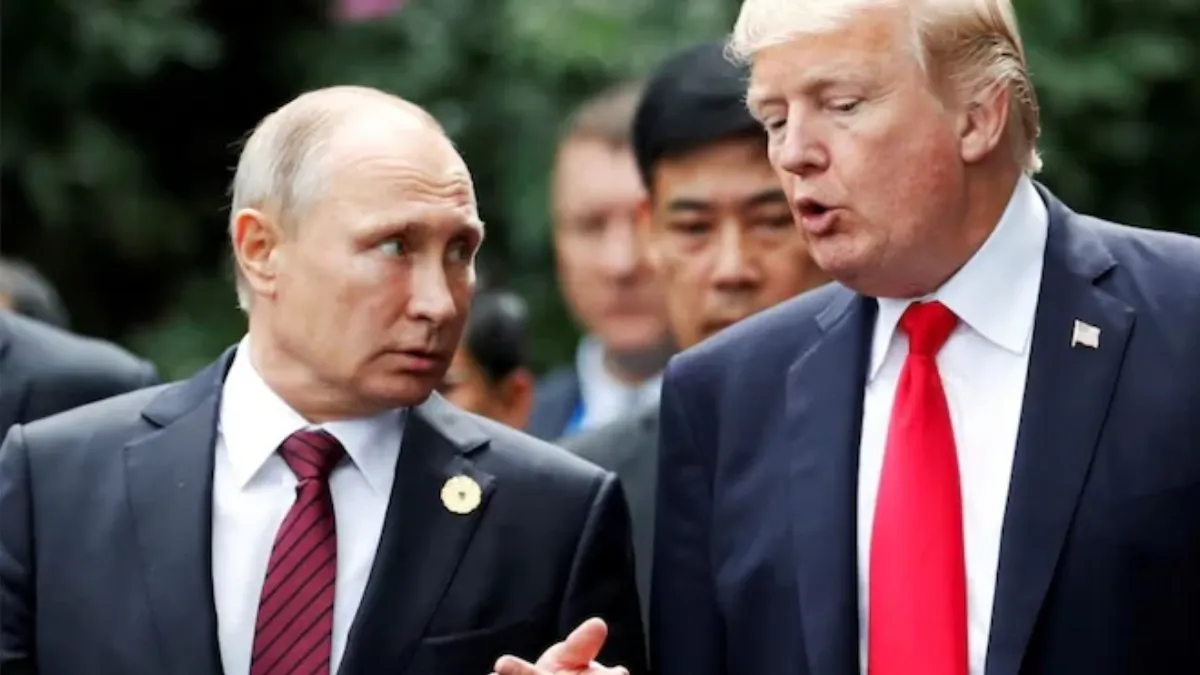In a candid admission during a joint press conference with UK Prime Minister Keir Starmer at Chequers, US President Donald Trump revealed his frustration with Russian President Vladimir Putin over stalled efforts to end the Russia-Ukraine war. Trump, who once boasted of resolving the conflict in a single day, conceded that the crisis has proven far more intractable than he anticipated.
Speaking alongside Starmer on the final day of his state visit to Britain, Trump stated that he had initially viewed the Russia-Ukraine war as the simplest global dispute to halt. “I thought the Russia-Ukraine war was the easiest to stop but Putin has let me down,” he remarked, adding, “I thought it may be easiest.” Despite this setback, Trump expressed determination, noting, “As you know, we are working for a solution for Israel and Gaza, we are working to solve so many conflicts, we will get Israel-Gaza done, likewise, Russia and Ukraine will also be done, but you never know in war.”
The US leader highlighted the heavy toll on Russian forces, observing, “I mean, frankly, Russian soldiers are being killed at a higher rate than the Ukrainian soldiers. But, yeah, he’s let me down.” Trump attributed the 2022 invasion to Putin’s perceived lack of regard for prior US leadership, asserting, “If I were president, it would have never happened, and it didn’t happen for four years. People, most people, agree. It didn’t happen, nor was it close to happening.”
A prior summit between Trump and Putin in Alaska had seen the American president pressing for direct negotiations with Ukrainian President Volodymyr Zelenskyy, yet no breakthrough emerged. Trump’s pre-inauguration pledge to swiftly broker peace between Moscow and Kyiv now underscores the challenges encountered.
Starmer, in turn, condemned Putin’s recent escalation—the largest assault since the invasion’s outset—as evidence of insincerity toward diplomacy. “In recent days, Putin has shown his true face mounting the biggest attack since the invasion began, with yet more bloodshed, yet more innocents killed, and unprecedented violations of NATO airspace,” the UK prime minister declared. “These are not the actions of someone who wants peace. So we’ve discussed today how we can build our defences to further support Ukraine, and decisively increase the pressure on Putin to get him to agree to a peace deal that will last.”
Amid the geopolitical tensions, the two allies sealed a landmark agreement on technological collaboration, poised to inject billions of dollars into artificial intelligence, quantum computing, and nuclear energy sectors. Officials project the deal will generate thousands of jobs across the UK and US. Starmer hailed it as a “groundbreaking” pact, describing it as the largest investment commitment in British history.
The exchange at Chequers reflects ongoing transatlantic solidarity in confronting authoritarian aggression while advancing economic ties, even as the path to Ukrainian peace remains elusive.
